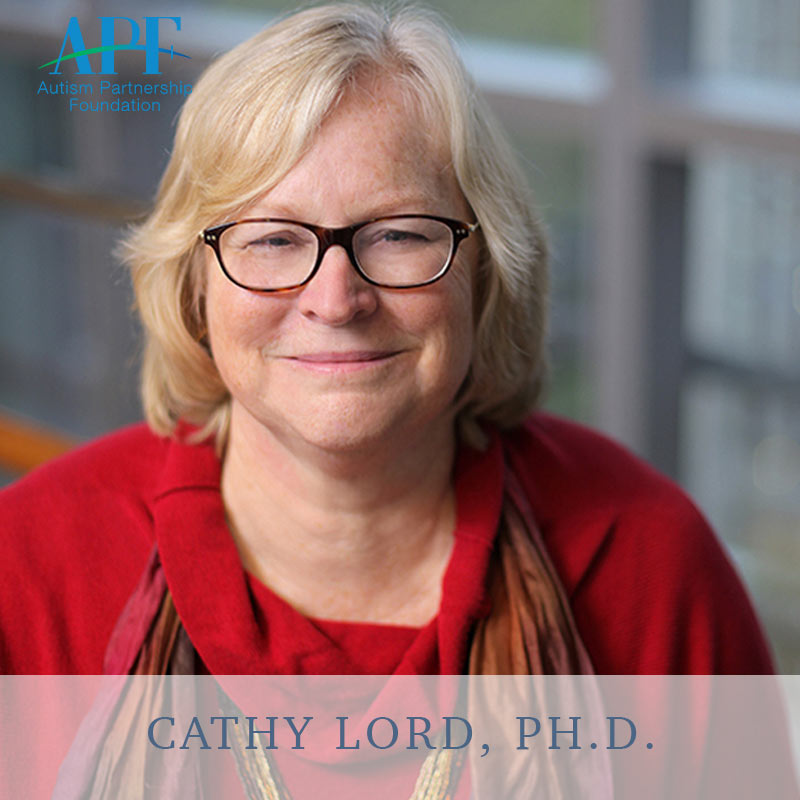Cathy Lord, Ph.D. | Measuring changes in social communication in response to treatment and education | 1 Hour
Filmed in 2019
Abstract:There is a critical need for measurements of change in behavior for children and adults with autism that can be used to monitor progress and also justify funding of treatments. Despite a long history of careful clinician documentation of behavior change in Applied Behavior Analysis, much of the world remains skeptical about such methods because of concerns about placebo effects and unconscious bias by clinicians, caregivers and teachers, as well as about generalizability. Recently there have been several questionnaires and interviews of caregivers and providers used to address these questions which can be extremely valuable, but still do not eliminate concerns about placebo effects and bias. Yet the most commonly used observational scales, including the Autism Diagnostic Observation Schedule and the Screening Tool for Autism in Two-Year-olds (STATA), generally do not show short-term changes in response to treatments. Our goal was to use knowledge from the ADOS to develop a video-based measure of short-term gains in social communication that could be used widely and relatively inexpensively by providers of treatment and educational services for children and adolescents with autism. Consequently, we developed the BOSCC (Brief Observation of Social Communication Change), a measure that involves a 12-minute video observation of a child interacting with a caregiver, therapist or teacher or naïve researcher, that is then coded by an independent observer who is blind to the child’s treatment condition (ideally, even before or post-treatment). Initial analyses by our group and two other groups have shown moderate to mild effect sizes in change in response to various early interventions and treatments with older, minimally verbal children lasting 3 – 6 months, particularly in interactions with caregivers and providers. Modules of the BOSCC appropriate for older and more verbal children are in development; many studies are underway to test the generalizability of findings with caregivers and therapists to interaction with an unfamiliar adult and to help us better understand the changes that our interventions are and are not making.
Learning Objectives:
-
- To increase awareness of the limitations and strengths of current methods of measuring changes in behavior in response to treatment.
- To provide alternative ways that changes over short periods of time can be assessed in ways that measure generalizability and limit bias
- To describe a new measure and strategy for measuring change and evoke discussion about the strengths and weaknesses of such an approach.


